Louisenthal
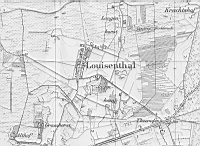
German name: Louisenthal
Alternative name: Luisenthal
Todays name: Borzyslawiec
District: Naugard
Todays district: Zachodniopomorskie
Location: 14°43‘ Ost, 53°31‘ Nord
Location description: approx. 7 km southwest of Gollnow,
approx. 20 km northeast of Stettin, approx. 25 km behind the
GermanPolish border
Religion: ev.luth.
Church district: Lübzin
Military unit:
Civil records: Louisenthal
Surface:
Municipality encyclopedia: IV-16-141
Population:
1871: 451 persons, see census data
1905: 209 persons
2000: 87 persons
Census data at the 1.December 1871:
451 Inhabitants, 227 male, 224 female, 254 localnative, 230
evangelist, 221 catholic, 0 jews, 144 children under 10 years, of
the persons over 10 years 281 can read and write, 26 illiterates,
0 without indication. persons with physical defects: 0 blind
ones, 0 deaf-mutes, 2 "stupids and lunatics", 3 are
localabsent, altogether 39 residential buildings, 3 living place,
85 family households, 2 single households
Info about Louisenthal:
http://www.heritagequest.com/genealogy/europe/html/borzyslawiec.html
http://www.heritagequest.com/genealogy/europe/html/luisenthal.html
Sources for ancestor research in Loisenthal:
Mormons:
Films:
Catholic church records for Luisenthal on microfilm:
LDS microfilm 544873; Kirchenbuch, 1809-1945
Katholische Kirche.
Johanniskirche Stettin; Church records of baptisms, marriages,
deaths,
etc. for Sankt Johannes parish Stettin, Germany, now Szczin,
Poland.
Includes Augustwalde, Blumenthal, Hoppenwalde, Luisenthal and
Viereck.
New !!!
Pictures
of my attendance in October 2004:
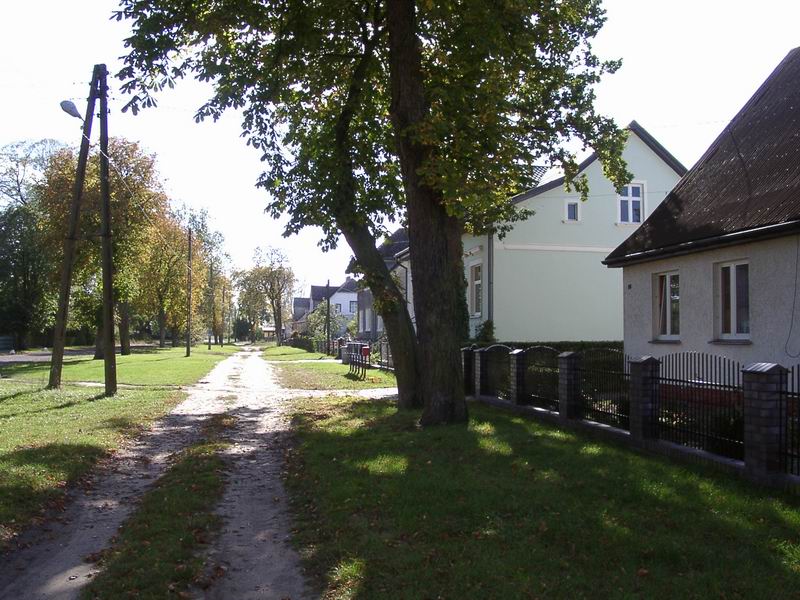
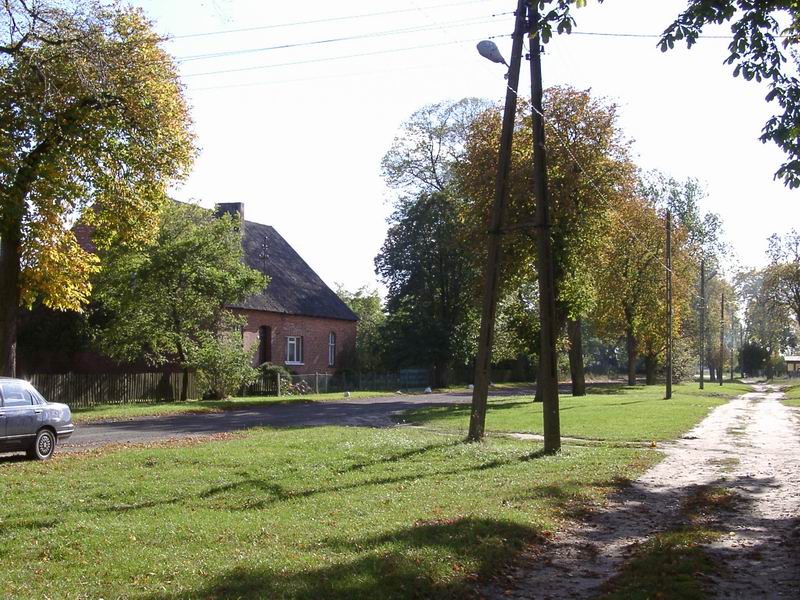
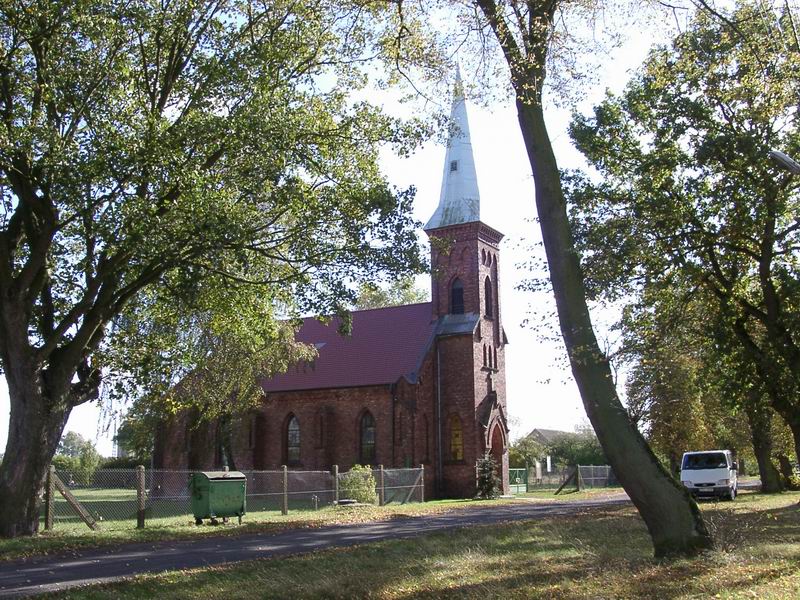
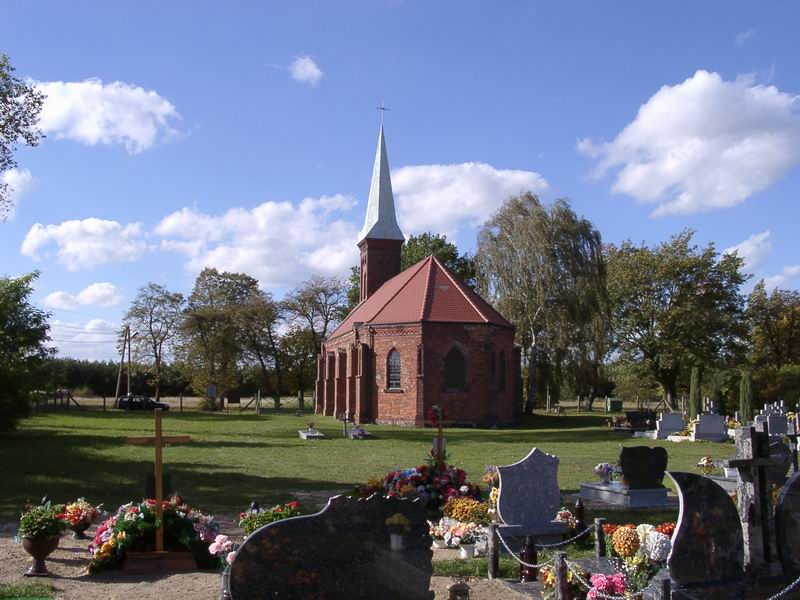
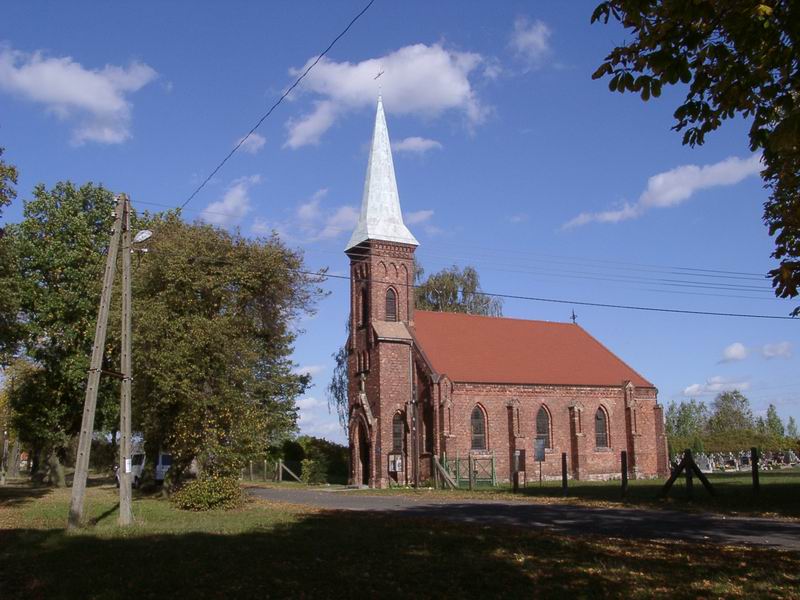
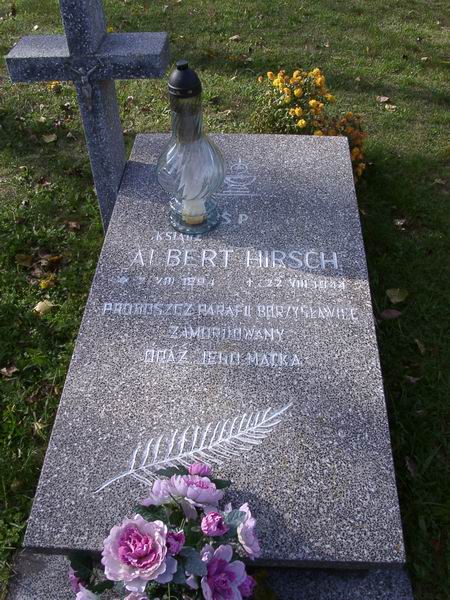
Eindrücke:
Louisenthal is not far away from Lübzin close to the river Oder.
It's small an only consists of one road with small brick-houses
on the left and right, the old buildings, but in good shape. The
church is in good shape too as well as the cemetary, but no old
german graves anymore. Very remarkable ist the historic high
percentage of catholics in this village, because most of the
early colonists came from the "Pfalz"-region of south-germany, where
mainly catholics lived.
If someone speaks polish: Here is a description of the village
from the polish Gollnow-Homepage:
http://www.goleniow.pl/index.php?option=content&task=view&id=148